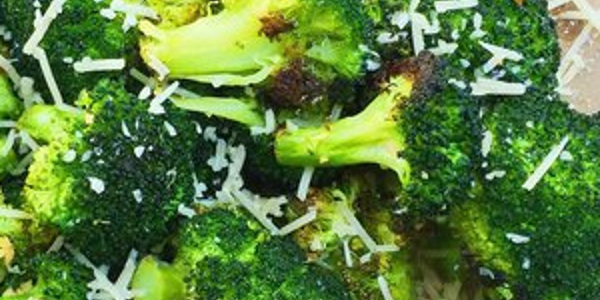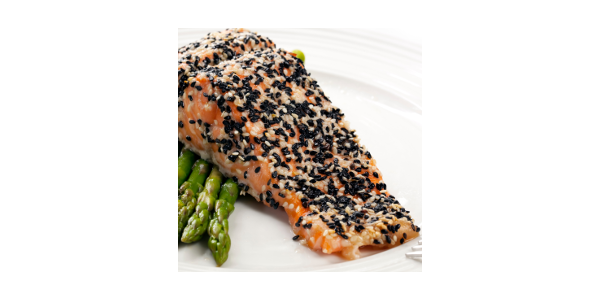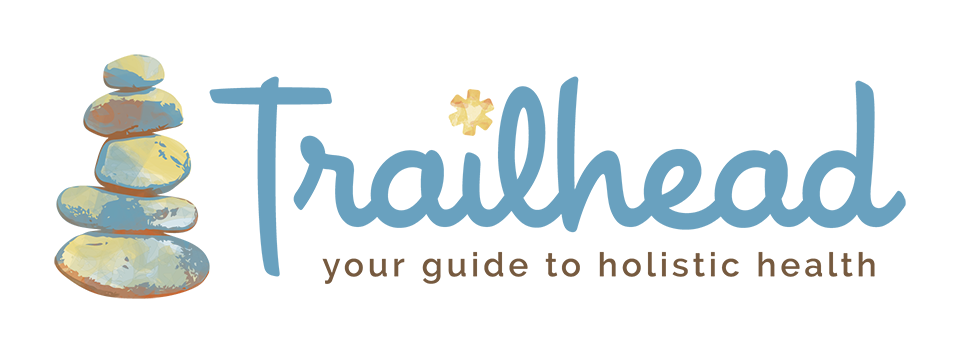Thirty-one percent of people in the United States are at risk for a deficiency in at least one vitamin or mineral essential for good health. It may be hard to imagine that we don’t get enough nutrition when we see an abundance of food available 24/7, but it’s true. A recent study showed the top five nutrients many of us need more of: Vitamin D, Vitamin B6, Vitamin C, Vitamin B12 and Iron.
Should you be concerned about being low in one or two vitamins or minerals? Yes!
I work with women everyday who are struggling with hormonal imbalances. Vitamins and minerals are not only important for a healthy balance of cortisol, thyroid and progesterone, but they are crucial for overall optimal health.
Many women are suffering from symptoms because they are low in nutrients. Though being low may not cause immediate symptoms, it does also put you at risk for many serious diseases that can affect your brain, heart, blood, immune system, metabolism, bones, mental health, etc.
Nutrients are crucial to maintaining all your systems in good working order. A deficiency in just one or two can throw off the delicate balance you need to be healthy and feel great. That’s because most nutrients don’t have just one vital role to play within the body, they play many, many important roles.
How would you even know if you’re at risk for a nutrient deficiency?
Symptoms you could experience include:
- fatigue
- irritability
- aches and pains
- decreased immune function
- heart palpitations
But sometimes symptoms aren’t felt for a long time and sometimes they can be vague and non-specific.
For women struggling with imbalanced hormones – elevated cortisol, low thyroid or low progesterone - there are a few nutrients that are particularly important.
Nutrients Required for Hormonal Balance
Vitamin B6
The number one most common nutrient deficiency in the US was Vitamin B6. This vitamin serves many important functions for your blood, brain, and metabolism.
- helps the formation of hemoglobin in the blood (the part that carries oxygen around)
- maintains normal levels of homocysteine (high levels of homocysteine are linked with heart disease)
- production of neurotransmitters (chemical messengers allowing nerve cells to communicate with each other)
- plays a role in regulating the production of cortisol (your stress hormone)
- involved with over 100 enzyme reactions in the body, mostly for metabolism
Some of the main symptoms of a serious deficiency in Vitamin B6 are:
- depression
- confusion
- convulsions
- microcytic anemia
In addition, a less serious deficiency may have long term consequences including increased risks for heart disease and Alzheimer’s.
These wide-ranging health effects are why Vitamin B6 is so essential for health.
Vitamin B6 is found in all food groups. Some of your best sources include:
- high-fiber cereals
- potatoes
- non-citrus fruits (e.g., bananas)
- animal-based foods such as poultry, fish, and organ meats
Try this recipe to add more B6 to your diet.
Chicken and Wild Rice Harvest Bowl, makes 5 servings, from Living Plate
Ingredients
- 7 cups kale, spines removed and chopped
- 2 cups Brussels sprouts, halved and roasted
- 1 medium Delicata squash, peeled, diced, and roasted
- 1 medium sweet potato, peeled, diced, and roasted
- 1 lb chicken breasts, cooked
- 1 cup wild rice, cooked according to the package directions
- 1/2 cup pomegranate arils
- 1/2 cup sliced almonds
Dressing
- 1/4 cup olive oil
- 1/4 cup tart cherry juice
- 1/2 lemon, juiced
- 1 clove garlic, minced
- 1 tsp maple syrup
- 1 tsp Dijon mustard
- salt, to taste
- pepper, to taste
Roast Brussels sprouts and Delicata squash. (see notes). Cook chicken. (see notes). Add dressing ingredients in a mason jar and shake to combine. Season with salt and pepper, to taste.
To assemble, divide the shredded kale evenly in the bottom of five shallow bowls. Top with cooked wild rice, chicken, Brussels sprouts, squash, almonds and pomegranate arils. Drizzle with the vinaigrette to taste. (or dressing of choice).
Notes
For the Delicata Squash and Sweet Potatoes: In a large bowl, combine the delicata squash and half of the olive oil. Toss evenly and then sprinkle with salt and pepper. Transfer to one of the lined baking sheets. In the same bowl add the Brussels sprouts, remaining olive oil, salt, and pepper. Toss to combine and transfer to the second baking sheet. Place both trays in the oven and bake 30-35 minutes at 400°F or until squash is soft and lightly browned and sprouts are crispy. For the chicken: On the other lined baking sheet, arrange the chicken breasts and season to taste with salt and pepper. Divide the olive oil evenly and spread around the tops and bottoms of the breasts. Bake for 13-15 minutes at 350°F or until the thickest part reached 165°F.
Vitamin C
Vitamin C is important for wound healing (via a protein called collagen), the production of neurotransmitters, metabolism, and the proper functioning of the immune system. Vitamin C also acts as an antioxidant to reduce the damage caused by free radicals that can worsen several diseases such as certain cancers and heart disease. It helps your body absorb the essential mineral iron. Vitamin C is also important to balance cortisol production allowing better stress management as well as improving levels of progesterone. Progesterone may be an important factor in balancing the symptoms of PMS.
You can get Vitamin C from many fruits and vegetables. Ones particularly high in Vitamin C include:
- bell peppers
- broccoli
- Brussels sprouts
- cabbage
- cantaloupe
- cauliflower
- kiwifruit
- oranges and orange juice
- strawberries
- tomato juice
When choosing foods for Vitamin C, choose the freshest options because levels of the vitamin naturally reduce over time the longer the food is stored. Try, as much as possible, to eat Vitamin C-rich foods raw. If you do cook them, then choose steaming and microwaving instead of prolonged boiling because the vitamin is destroyed by heat and is water-soluble.
Broccoli is one of the nutrient powerhouses in your diet. Try this delicious recipe today!
Italian Parmesan Broccoli, makes 4 servings, adapted from milkandhoneynutrition.com

Ingredients
- 1 head broccoli, chopped into florets (about 3 cups)
- 2 Tbs olive oil
- 2 tsp garlic, minced
- 1 tsp dried rosemary
- 1 tsp Italian seasoning blend
- 1/4 tsp pepper
- 2 Tbs Parmesan cheese (optional)
- salt, to taste
Preheat oven to 375°F. Place broccoli florets in a large bowl. In a small glass bowl, mix avocado oil, garlic, rosemary, Italian seasoning, and black pepper. Pour oil mixture over broccoli and toss to coat. Spread broccoli on a greased baking sheet. Bake for 12-14 minutes. Immediately top with Parmesan cheese and sea salt and serve.
Vitamin D
Vitamin D, also known as the “sunshine vitamin,” is very important for your bones. It promotes the absorption of the mineral calcium. When your body has enough calcium, it can maintain normal bone mineralization and prevent problems in the muscles that lead to cramps and spasms.
Getting enough Vitamin D and calcium can also help protect against osteoporosis. In addition to all these bone and muscle impacts, Vitamin D helps to reduce inflammation and modulate both immune function and sugar metabolism. Vitamin D plays a role in the balance of thyroid and is important for women with elevated androgens.
Without enough Vitamin D bones can become thin, brittle, or misshapen. Vitamin D prevents these issues known as rickets (in children) and osteomalacia (in adults).
Your skin makes Vitamin D when it’s exposed to the ultraviolet rays of the sun and very few foods naturally contain it. Some foods rich in Vitamin D include:
- fatty fish and fish liver oils (e.g., salmon, trout, cod liver oil)
- egg yolks
- beef liver
- cheddar cheese
- some mushrooms (particularly those exposed to UV light)
Most of the dietary Vitamin D that people in the US get is from fortified foods and beverages. These include:
- dairy products (mainly milk)
- certain plant milks (e.g., soy, almond, or oat milks)
- various breakfast cereals
- a few types of orange juice.
Be sure to look at the nutrition labels to see if and how much Vitamin D is in each serving of the food or beverage.
Salmon can be a source of vitamin D but is always a great choice because of its nourishing fats that are good for your brain too.
Seed Crusted Salmon, makes 4 servings, from Living Plate

Ingredients
- 2 lb salmon, fillets
- 1 Tbs olive oil
- 1/4 tsp salt
- 1/4 tsp black pepper
- 3 Tbs hemp seeds
- 2 Tbs sesame seeds, black (or regular)
Preheat oven to 350° F and line a baking sheet with parchment paper. Brush salmon with olive oil and season with salt and pepper. Mix together hemp and sesame seeds in a shallow dish. Press salmon, flesh-side down, into the seeds, and place face-up on the baking pan. Repeat with all filets. Bake in the oven until salmon is cooked through (to an internal temperature of 145° F) about 20 minutes.
Conclusion
Up to one-third of people in the US are at risk for at least one nutrient deficiency. Most commonly, that deficient nutrient is Vitamin B6, but there are also many people deficient in vitamins C and D as well. Vitamins and minerals are essential nutrients because you need them for good health. Lacking in any one nutrient can have far-reaching consequences.
Eating a nutrient-rich diet with a variety of foods can help everyone achieve their health and nutrition goals.
To know if you’re at risk for a nutrient deficiency, consult a Registered Dietitian Nutritionist who can review your foods and supplements and test for nutrient deficiencies.
I can help. Here is my link to book a chat about making sure to meet your dietary needs.
References
Bird, J. K., Murphy, R. A., Ciappio, E. D., & McBurney, M. I. (2017). Risk of Deficiency in Multiple Concurrent Micronutrients in Children and Adults in the United States. Nutrients, 9(7), 655.
Camfield, David (2013). The Effects of Multivitamin Supplementation on Diurnal Cortisol Secretion and Perceived Stress. Nutrients, 5(11), 4429.
Mumford, Sonny (2016). Serum Antioxidants Are Associated with Serum Reproductive Hormones and Ovulation among Healthy Women. J Nutr, 146(1), 98.
National Institutes of Health Office of Dietary Supplements. (2020, February 4). Vitamin B6 fact sheet for health professionals.
National Institutes of Health Office of Dietary Supplements. (2020, February 27). Vitamin C fact sheet for health professionals.
National Institutes of Health Office of Dietary Supplements. (2020, October 9). Vitamin D fact sheet for health professionals.


